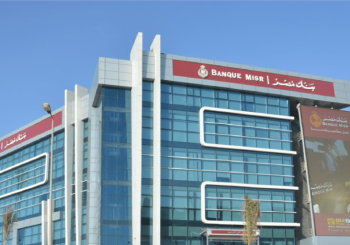As part of its strategy to push for the achievement of the UN’s Sustainable Development Goals (SDGs) amid the COVID-19 crisis, Egypt and Italy signed an agreement worth 42 million EGP for the Social Welfare Project in Luxor within the framework of the debt swap program in cooperation with the United Nations World Food Program.
In light of warnings by the UN that the COVID-19 pandemic could cause global food shortages, the project aims to protect food security and eradicate poverty through a full and integrated package that targets the most needy families.
It includes supporting families and primary school pupils in community schools, taking into account gender equality by focusing particularly on women, youth and girls that constitute 60 percent of these schools, through providing meals, vocational training, life skills training, and loan recycling.
The project will also promote quality education and decent work by developing technology and infrastructure in schools, and transforming 139 community schools schools into centers that provide integrated services in technology and capacity building – all of which support families to resist social and economic shocks and increase job opportunities.
“The United Nations World Food Program (WFP) in Egypt is supporting efforts by the Egyptian government to support groups of society that are most affected by the coronavirus pandemic,” Mr. Mengistap Haile, representative of the United Nations World Food Program in Egypt, said. “It will enable us to support building the capacities of those communities most in need to address the negative impact of the pandemic on their livelihoods and food security.”
The agreements come within the framework of the Italian-Egyptian Debt for Development Swap (IEDS) Programme, which aims to reduce Egypt’s foreign debt through using these debts to finance development initiatives rather than paying them back to the Italy.
Dr. Rania Al-Mashat, Minister of International Cooperation, highlighted the strong and strategic economic relations between Egypt and Italy, adding that the cooperation portfolio between Egypt and Italy amounts to 350 million euros.
Egypt and Italy have been cooperating through the debt swap mechanism since 2001, which saw the signature of the first phase bilateral agreement that was successfully concluded in 2008.
Building on the successes of the first and second phases, the third phase of the agreement, which was signed in 2012, will be completed in 2023 allocated into the main sectors: food security and nutrition, education, agriculture, environment and cultural heritage, civil society and technical assistance.
Earlier in April, the Food and Agriculture Organization of the United Nations (FAO) released a statement expressing concern on the potential impacts of containment efforts on food security and livelihoods for populations that are already experiencing food crises.
The Egyptian Food Bank launched a campaign to support daily wage earners “Supporting Day Labour: A Social Responsibility,” which will distribute 500 thousand feeding boxes and food bags to the daily wage earners and those whose livelihoods will be be negatively affected as a result of the containment efforts.
Since Wednesday, Egypt’s Health Ministry announced that 155 more people have tested positive for COVID-19, and 5 more have died, bringing the number of infections to 2,505 and total deaths to 183.
The government continues to implement its partial curfew which runs from 8 P.M. to 6 A.M to contain the quick and sudden rise of infected cases.







Comments (2)
[…] Egypt and Italy signed an agreement worth EGP 42 million for the Social Welfare Project in Luxor in cooperation with the WFP, which aims to protect food security and eradicate poverty […]
[…] Egypt and Italy signed an agreement worth 42 million EGP for the Social Welfare Project in Luxor in cooperation with the United Nations World Food Program, which aims to protect food […]